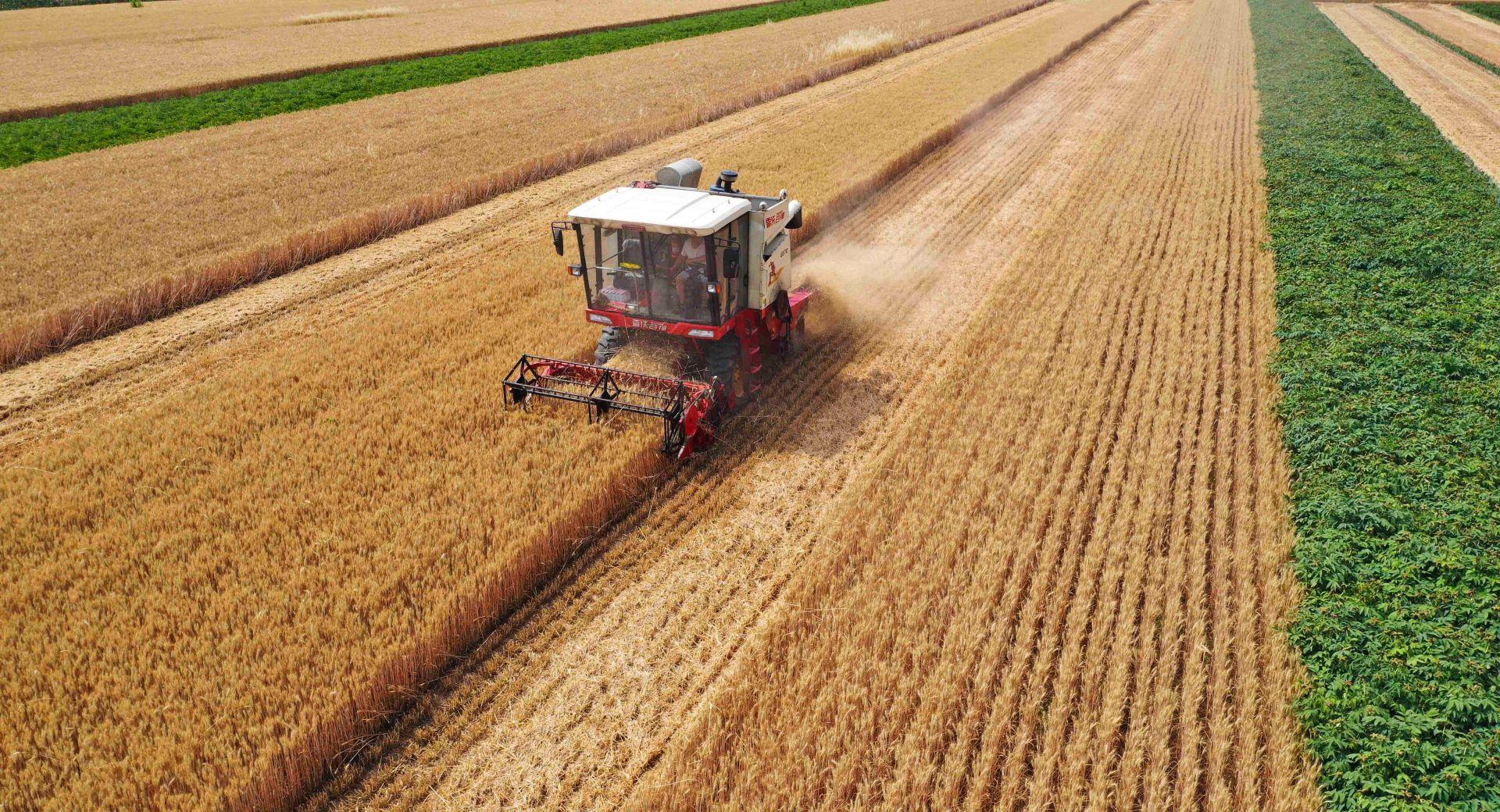BEIJING, June 12 (Xinhua) -- China's supply and trade of major farm produce will not be challenged much despite the escalating trade tensions triggered by the United States, a Chinese agriculture official said.
Higher custom duties on major American farm produce will not result in inadequate supply, and key Chinese farm produce could be exported elsewhere, said Han Jun, vice minister of agriculture and rural affairs in an interview with Xinhua.
U.S. FARMERS ARE LOSING CHINESE MARKET
As one of the most important export markets of U.S. agricultural products, China imported farm produce worth 24 billion U.S. dollars in 2017.
From July 2018 to March 2019, U.S. agriculture exports decreased to 6.25 billion dollars, about 70 percent lower year on year, due to trade frictions. Exports of major products including soybeans, grains and cotton went down 87 percent, 95.5 percent and 43.6 percent year on year, respectively.
Responding to U.S. tariff hikes on Chinese products, China has imposed additional tariffs on American farm produce since July 2018. "Almost all U.S. agricultural products have been imposed with additional tariffs as a countermeasure against the trade conflict started by the U.S.," said Han.
U.S. farmers cannot afford to lose the China market, as it would be rather difficult for them to retrieve their market share if other countries take it up, noted Han.
He also emphasized that the bilateral agricultural trade will not return to normal until the U.S. removes all additional tariffs.
CHINA WELL PLACED TO SECURE KEY FARM PRODUCE SUPPLY
The decline of U.S. exports does not affect China's major farm produce imports much as the country can secure supply with abundant policy tools through multiple supply channels.
The country could broaden import channels such as increasing soybean imports from Russia and South America.
China could also increase domestic output by enlarging planting areas and nurturing new species while decreasing consumption by using alternative oil production plants and introducing low-protein feed.
Han also noted that China's demand for soybeans decreased since last year, adding that China is well placed to keep the balance between soybean demand and supply and maintain the stability of the market.
U.S. MARKET NOT THE ONLY CHOICE FOR CHINESE AGRICULTURAL PRODUCTS
According to Han, China's exports of advantageous farm produce including aquatic products, fruits and vegetables declined in the fourth quarter of 2018 and the first quarter of 2019 due to U.S. tariff hikes.
The total agricultural exports to the U.S. decreased 8.8 percent year on year with aquatic products down 6.6 percent, fruits down 19.8 percent and vegetables down 16.4 percent, respectively. The exports may drop further since the U.S. increased the tariff hike from 10 percent to 25 percent.
Faced with the situation, Han explained that China could turn to other markets for agricultural export. On one hand, the country could exploit the potential of traditional markets including the ASEAN, Japan and the European Union. On the other hand, it could strengthen trade cooperation with Belt and Road countries to create new substitute markets.
Meanwhile, Chinese enterprises should be encouraged to expand the domestic market to meet the needs of high-quality aquatic products, fruits and vegetables.




 A single purchase
A single purchase









